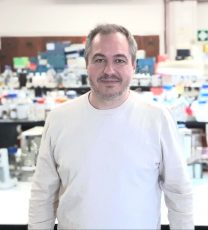
New bacterial biostimulant improves crop yield and quality while protecting against cold and salinity
Climate change has brought about sudden temperature changes in recent decades, such as colder winters, and has also increased the frequency of droughts, which have a significant impact on farming yield. Researchers at the University of Barcelona (UB) have developed a tool to help fight these adverse effects. It is a new type of biostimulant that improves crop quality and also protects against cold and high salinity that comes with drought conditions. Plus, this innovative product has been proven to improve crop yield and quality in trials on tomato and rapeseed.
Biostimulants are organic blends of various plant extracts or products formulated using living micro-organisms that help plants grow by stimulating their metabolism. These characteristics have made them a more eco-friendly, organic alternative to synthetic fertiliser in recent years. Despite being extensively used in agriculture, chemical fertilisers can contaminate the soil, water and air, harming the environment and altering natural ecosystems.
The new biostimulant developed by the UB research group is based on new strains of Pararhizobium sp isolated and characterised in their lab. These biological stimulants can be an effective option that is more eco-friendly than current fertilisers, and can also be used alongside them, protecting crops and cutting down on synthetic fertilisers and their hazardous effects.
The team led by Professor Rubén Alcázar of the Department of Biology, Healthcare and the Environment in the Faculty of Pharmacy and Food Sciences has already successfully validated the efficacy of this new biostimulant in rapeseed and tomato crops. In tomatoes, the new product improved crop yield, made plants more tolerant to low temperatures and improved fruit quality. With rapeseed, the group observed increased performance, resistance to freezing temperatures and salinity tolerance.
Moreover, the product is easy to scale up as the strains are stable and their growth conditions are suitable for industrial use.
As such, a European patent application has already been submitted to protect the innovation and work is under way on new trials to validate the efficacy of the biostimulant in other crops.


